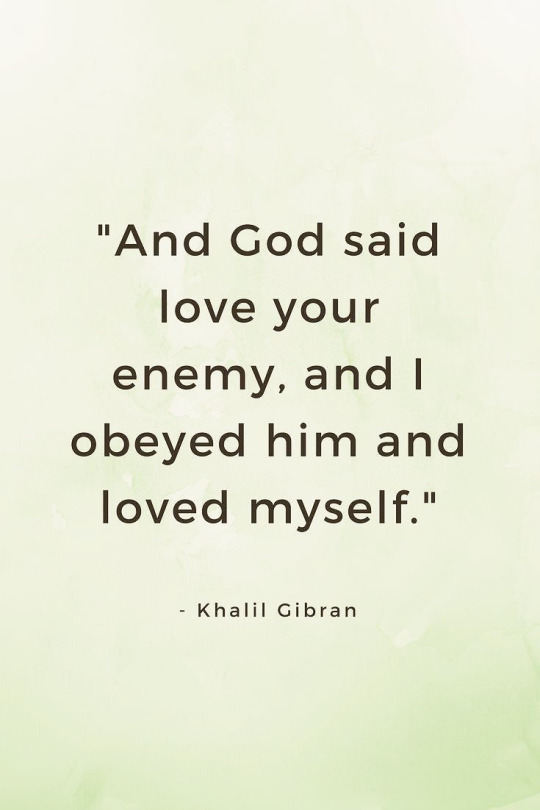Text
Why don’t you swear?
It takes not saying 5 words from the English dictionary to distinguish myself from 90% of society. Because it’s the easiest way to distinguish myself.
0 notes
Text
Today I found that I have a good friend
I felt like myself again with her that I haven’t felt in a long time. I felt relaxed and with no pressure to please, no worries about being judged or that I’d do something wrong which would distance myself from her. I felt secure. Relaxed around her, clear... no maladaptive daydreaming, because I didn’t want to leave from those moments with her. We could chill. There was no need for small talk. No competition or strive to get at X point in relationship because then I’d feel secure in it and have to wait for that point before I can open up more.
0 notes
Text
Annie’s 4 steps to emotional enlightenment
1. realisation that you need to work on something
Someone saying something you always thought, you having a good old think, you spotting patterns in old habits.Annie feels a feeling of happiness that she’s noticed something since it’s a sign of change, or crying because it’s daunting to loose something that one has put so much energy into.
2. Somehow release the emotions that come along with realising
If your angry, punch bean bags, like a lot of bean bags.Crying, a lot of crying, crying and talk to self in the mirror and punching more beanbags. Talking to self in the mirror then more crying. Silent screaming, dehydration.Don’t be afraid to cry randomly is Annie’s top tip, this stages is very similar to breaking up with yourself. And is the stage where you could cry it all out.
3. Opening up to friends and family
Taking about how your feeling. Importantly, talk to right friends -the ones who listen. That person is the one who actually listens, don’t switch conversation to themselves (the occasional chip in is natural) these are the friends you want to keep.
You won’t feel better about everything, just aspects. Sharing makes you feel lighter about the issues.
4. Action
Taking action and improving on things that you planned.
0 notes
Text
I overthink things a lot... is that a bad thing, it encourages contemplation and therefore self development, and what kind of life have we lived if it weren't for shedding old skins and reinventing ourselves.
0 notes
Text
Hiking in silence sounds like a great idea
No moaning, no asking how long until we finish, no futile comments like ‘oh, that’s a nice looking tree’, just enjoying the present and admiring the journey. Will you be able to complete this challenge?
0 notes
Text
On voting
The suffregets fought so hard to give women the right to vote, so you must vote, otherwise YOUR letting all women down!
Is the pompous, regurgitated and recycled exclamation I hear over and over again once people find out that I’m disinterested in voting. It’s a lame excuse that someone heard one day, thought was witty and put it in their pocket waiting eagerly and impatiently to pull out once they have the chance.
Women fought for the right to vote and not the obligation. Again we’re dabbling on the fact that women have to fit in one category and can’t have their own choices. I’m not doing a disservice to women everywhere by not voting. In fact I’m doing the
opposite because I’m exercising my choice to do something and not letting a man pressure me into something I don’t want to do. It is a masogistic and meaningless remark. It has no value. It’s not a proper argument saying that I should do something purely because I can.
The reason that, right now, I don’t vote is because, right now, I’m not all that interested in politics. So I would just end up voting for a party just because a billboard tells me to, or because one name appears in my news feed more often (though I don’t have any social media). Voting is serious and it has consequences. I can’t willy nilly go up to the polling station and make up my mind there, because ‘I’m undecided, I guess I’ll see what I feel like on the day’ like most people I talk to. Or vote for the same party because it’s like a pure and long family tradition to do so. Voting is serious. Politics, democracy, health care, economics, welfare, transport, employment is serious. So a good voter would read every single manifesto unbasidley. Question every single point and see which party reflects their own moral principles and values the most. That is how you should vote. That is how we put the correct men and women in the chairs. You shouldn’t be swayed by biased news reports, your collegies who know ‘much more about politics then I do so I trust them more’, a whim on the day, or even the results of a Buzzfeed quiz you took last Sunday.
The response I usually give to this overused and empty remark said by people who have nothing better to say is ‘if I voted to put Tony Blair in power, and then he went on to declare a war on Iraq against the peoples will, then i couldn’t have that on my consciousness. It would be like the blood was on my hands because I chose to support him’.
your vote matters! They push on, completely ignoring your views. Every single vote is important and could be all it takes to tip the scale and change history! Ok then, I’ll vote. But first tell me the one party that I should absolutely not vote for.... Good, I’ll vote for them.
0 notes
Text
Turn off your autocorrect. Who says it was a mistake?
^i think that is important to have raw, unpolished ideas, printed straight form what it was. Otherwise it’s disenguine. That’s why we don’t edit or barley proof read my work, They’re published straight off the bat which is quite scary, but it’s authentic and the character hasn’t been swiped away from it. I think that gives people the confidence to write things themselves. Not seeing the same polished and carbon copied Collums might encourage them to get something out from inside of them that is authentically themselves... and feel as if it is worthy of tangible space in this word.
That’s why writing is so therapeutic. We’re taking out thoughts that are swirling round our head and making them extendable. Making them tangible. Letting them take up space. Letting it use up some ink or spread over some paper. Because when we can actually see something, we can appreciate it and understand it more. I like to think of it as our words taking up some space in the universe now. It can be read by the heavens above by not being hidden inside our heads. It is part of the fibres of reality and history. And it gives us hope that somehow, In the thousands or millions of years to come, they’ll still be some trace of who we were.
I recommend listening to ‘letters live’ it’s a programme where actors read out real letters and inspires us to do the same. It’s amazing how much character and passion is locked up inside of each and every person. How much ability. How much verbal agility. How much muchness we have in our souls wrattkibg the prison bars and waiting to be shared. It’s beautiful hearing the beauty behind the skin. It’s raw and imperfect and it’s breaking off a piece of the individual and sharing it with others. It’s love, it’s a strive for oneness. It’s compassion, it’s anger, it’s a craft that we all inatkey have.
0 notes
Text
why keeping a journal is important
I started writing because I was lonely. I had all these ideas I wanted to tell people, but couldn’t. So I told it to my notebook. I’m glad of that, because now I can share these ideas with the world.
Keep recording because you’ll be able to look back and see how your tone and writing style changed over events in your life. It allows you to relive those moments and is the best type of sentimental item.
I found writing in a journal difficult at the beginning, but after doing it enough I broke through that threshold and it is now easier. When we right about something we don’t like, it is difficult.
My cousin first inspired me to do this. Because she’s a therapist and because she cares and I’m grateful for her.
When your write something digitally, your tempted to change it go over it with a voice that isn’t authentically of your own.
0 notes
Text
Down the YouTube rabbit hole.
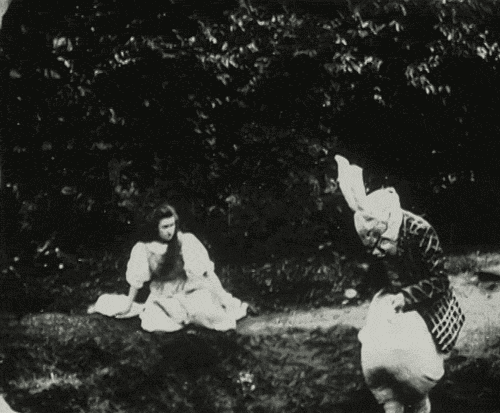
By The minimalists: schedule time in your calendar to binge watch YouTube.
0 notes
Text
Why you need to know when your next break from work will be.
At school you knew the date of your half terms and holidays. Any exhaustion you felt within that term would be put on hold to be released on that date. It’s like your body subconsciously remembered that you needed to keep the momentum going up till that date, and that’s why a lot of people started to feel tired and sick on the days approaching the holidays, because the exhaustion storage was starting to get released.
If you don’t mark the days of your holidays, then your body will keep storing your exhaustion, but it won’t know how long to store it for. You could keep running without knowing that your carrying baggages of un-exercised exhaustion. If that happens for too long, it will get released in one go and could result in you being sick or having a burnout. So please, mark days of when you will have your holidays on your calendar in advanced, so that your body knows how to manage your exhaustion so that you can keep working effectively up until that date.
#calendar#organisation#study organisation#time management#workaholic#mindfulness#mindful working#holistic
0 notes
Text
Relaxing and being productive are not mutually exclusive.
There is a gap between work and leisure, and the length of that gap doesn’t vary that much. At the end of a day of work, we step down to a lower pace of working which is know as our recreational time.
If you do non-optimal work then that step down would be watching TV or basically doing nothing productive. If you do super productive work that step down would be reading a productive book, or doing an online course. The gap is the same relative to how productively you tend to work.
A lot of highly productive people may think that they are relaxing wrong, since the people around them may relax in an unproductive way and that this is the only true form of relaxation. The highly productive person may try to force themselves to stoop to that level even though it may be highly unnatural and difficult for them to do, but alas! they need to ‘relax’.
The productive person trying to relax will become restless and at the end of the day, won’t have relaxed at all. The truth is, relaxation comes in all shapes and sizes. If reading a book or doing an online course fits well with a person and is found relaxing to them then they need not worry about relaxing even more, or trying to force themselves into a deeper state of relaxation. There are no stages, and this is not a competition. Relax in a way that you find enjoyable.
1 note
·
View note
Text
A brief history of the Kingdom of Saudi Arabia (without Yemen)
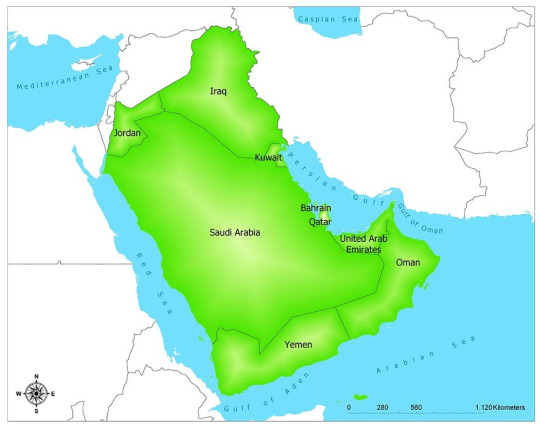
Arabia is a large piece of desert land situated in Western Asia. It was inhabited by many individual tribes know as Bedouins. Some Bedouin communities are still around today.
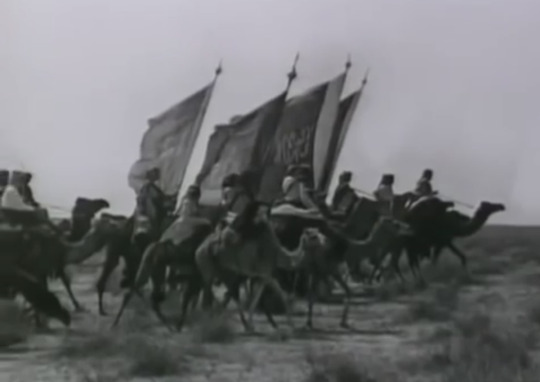
Example of how the Saudi military would have looked like.

Solid gold watches with Saud’s face printed in the middle where given as gifts to friends of the crown.
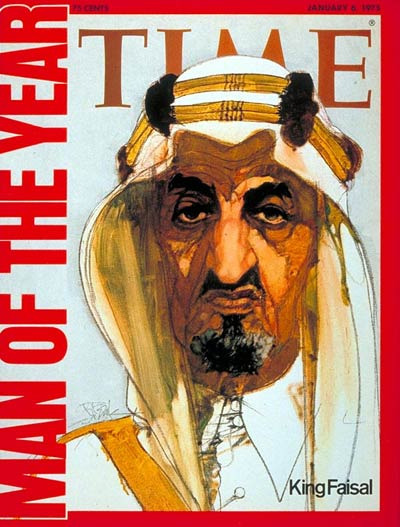
King Faisal was declared as Time magazine’s ‘Man Of The Year’ for his progressive views and actions.
In the 7th century the religion of Islam was founded by the Prophet Muhammad (PuH) who built Mosques in Mecca and Medina, which were territories in Arabia. These places had and have holy significance to Muslims (followers of the religion of Islam) all around the world, and would be the most important destinations for Islamic pilgrims. Muhammad ibn Abd al-Wahhab (not related to the Prophet Muhammad) started a new, very radical strand of Islam called Wahhabism in the 18th century. He had extreme beliefs about the importance of going to battle, the rights of women, and the prohibition of technical innovation. Wahhabism’s central belief is that Muslims is that modernisation is sinful and so seek to live their lives as though they are still in the 7th century. Although this strand starkly contradicted the peaceful message of Islam, many people did adopt this belief system and are called Wahhabi’s. Wahhabis still believe that they hold the one true doctrine and recognise people belonging to other belief systems (including other Muslims) as their enemy. One Bedouin tribe was the Saud family. In the mid 18th century, the visionary leader of the tribe, Muhammad ibn Suad, wanted to gain power over all the other tribes and conquer Arabia. To do this, they needed a military, but they had none. They needed the help of the Wahhabis.
The Wahhabis would give their military to the Saud family in exchange for political and religious influence when the family succeeded in ruling the area. An alliance was born. Slowly but surely the Saud family conquered major parts of Arabia. In 1924, the leader of the tribe Abdul Aziz bin Rama al Saud (or ‘ibn Saud’ for short) took over Mecca and Medina. The family gained much of it’s wealth and power by charging pilgrims who came to visit these holy sites. Now that lots of Arabia was conquered by the Saud family and the tribes who allied with them, the area is recognised as ‘The Kingdom of Saudi Arabia’ meaning the parts of Arabia belonging to the Saudi family. The Wahabis now had more authority including control over the educational and legal systems. A new source of revenue presented itself to the Saudi’s when oil was found in neighbouring countries. Ibn Saudi sought to take advantage of this and allowed the Oil Company of Souther California to find and drill oil reserves in Saudi Arabia. This was at the time of the Great Depression where oil was scarce in America. President Roosevelt knew that he needed to make an alliance with Saudi Arabia in order to obtain its vast amounts of oil. The wealth of Saudi family boomed, and ties grew strong between the West and Saudi Arabia. After Ibn Saud died, his brother Suad was appointed ruler of Saudi Arabia. Yet, it was suspected that he could not be trusted with money due to his extravagant lifestyle and the Kingdom would soon run into dept. The Wahhabis also disapproved of his relationship with the Egyptian president and socialist Gamal Nasser (who had Soviet connections). He was declared unfit to rule and was replaced by his brother Faisal, who became the regions most popular monarchs. King Faisal worked to propel the Kingdom into the modern age, introducing better hospitals, opening schools for girls and the abolishing slavery with the help of John F Kennedy, all against the will of the Wahhabis. Furthermore, King Faisal did not support the state of Israel which meant that relations were damaged between Saudi and the United States. King Faisal was later assassinated. The Wahhabis were angered by the Soviets invasion in neighbouring Afghanistan. Saudi Arabia and America’s mutual disapproval of the Soviet Union worked to re-strengthen their relationship and America supplied Saudi Arabia with weapons, money and military training to the Saudi troops to help defeat the Soviets. A young Osama Bin-Laden was one of Saudi fighters who fought in Afghanistan. In 1990, the dictator of Iraq, Saddam Hussain, invaded Kuwait. The Saudi monarch invited American and foreign militaries to station themselves inside their Kingdom to help fight against Saddam Hussain. This was objected by the radical religious authorities since they did not want foreign forces on their lands. To satisfy the conservatives, King Fahad *directed more funds towards them. This solution backfired since now that the radicals had more power, they sought to make Saudi Arabia a much more conservative place again. This involved removing women’s rights to study and work, and introducing more funding to conservative movements outside the Kingdom. Some American troops stayed after the Gulf war, which aggravated these groups even more, leading to a rise in terrorism against Americans living in Saudi Arabia. There are speculations that this triggered the horrific events of 9 11. The UK’s Serious Fraud Office started an investigation to verify the claim that some Saudi officials took bribes from major arms manufacturer, BAE systems. The investigation was ordered to be stopped by then Prime Minister Tony Blair and many where upset by his unpecedented compromise of the UK’s judicial systems and ideals of democracy. This is just another example of how the West will readily break down their values just to keep Saudi Arabia happy, so that they can keep their profitable ties with the kingdom, such as selling them weapons. The new King Abdullah wanted to modernise Saudi Arabia again and move away from the conservative religious establishments. He also sought to expand his economy by trading with other countries like India and China. Saudi Arabia is investing more money into education and sciences so that it can be less dependant on its finite natural resource and work to establish itself as a stable economy in the future. In 2009, King Abdullah announced that he was dismissing ultra-conservatives from their high positions. By distancing themselves from their tribal Bedouin roots, progress is being made today. For example, female ministers are being appointed, there are many more career and business opportunities and international artists are invited to perform concerts inside the Kingdom. Crown Prince Muhammad Bin Salman has publicly promised to end Saudi extremism. It is a shame that many people fail to educate themselves about the religion which is represented by one quarter of our worlds population. By lack of the want to learn more about the world around us, many people only see the radical strands of Islam, such as Wahhabism, and are quick to slur this mislead idea onto of the whole of Islam. I myself have met a shocking amount of non-Muslims who are certain that Islam is a violent, backward, women hating religion, even while the strong majority of Muslims support the Islamic ideals of peace, innovation and protection of human rights, just as the Prophet Muhammad tried to push for thousands of years before.
2 notes
·
View notes
Text
Annoying qualities
Me and my friends listed qualities that we found annoying
-stubborn
-closed minded people/opinionated
-disorganised
-really dumb people
-asking too many questions
-acting stupid to be funny
-mean on purpose
-really insecure people
-suck out for validation
-thinking instead of feeling
-men
-people who get things without working
-incompetent
-sarcastic
-double dippers
-jobsworth
-belittling talking
-controlling
0 notes
Text
“Speak from the heart” “My parents act like children”
I say something meaningful at school, something that sounds quite philosophical but digestible to anyone. An insight of the world that’s quite catchy like “The headteacher shouldn’t read from a script at assemblies, students would listen to her messages.”
Those conclusions circled round, were repeated a lot and shortly afterwards* re-explained to me, like I was never the one who said it, like they didn’t want to admit to themselves that I was the one who had this amazing insight. Perhaps they had to claim it as their own because they were a void of emptiness and could never come up with anything original, and this lie that they told themselves tamed that insecurity. They had to trick themselves into believing that it was their own original insight. I had to remind myself to pity them for that, instead of being annoyed that my credit was stolen, and that I had completely vanished from the equation, or that they had the audacity to think that they were more enlightened by me by explaining back something that I had just explained to them., in the literal same wording, and in a proud, patronising way like this stuff was new to me.
*the use of the term shortly applies to the area of time between a few minutes and a couple of days.
0 notes
Text
“You not finding me attractive is not going to stop me from being attractive”
-said somewhere on Tumblr
0 notes
